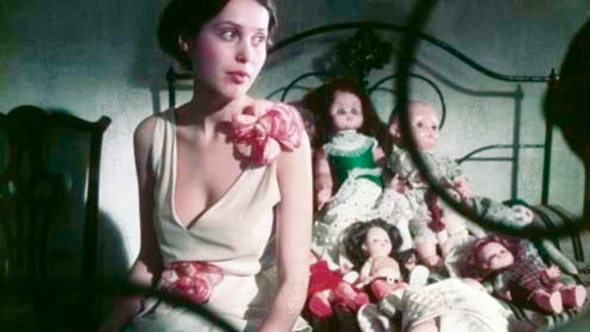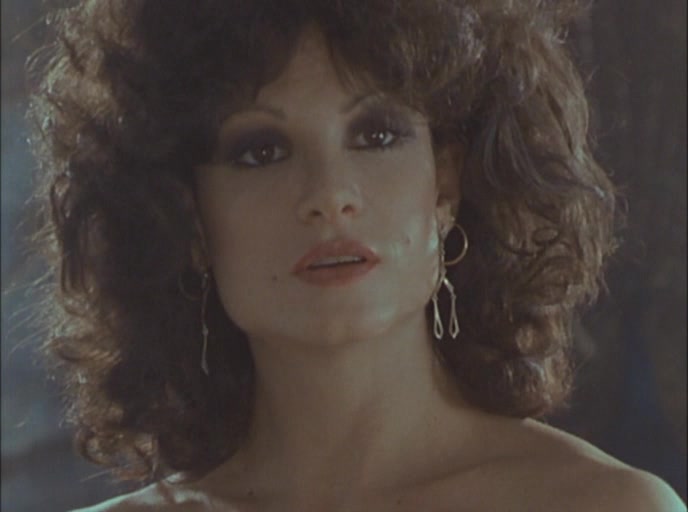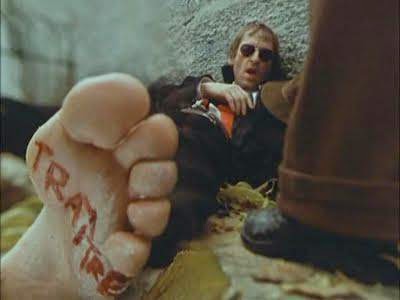
Terrence Malick's THE TREE OF LIFE remains one of the transcendent experiences of my life, like the first time I saw the Grand Canyon. Like TREE, SONG TO SONG is film aspiring to the state of poetry, or music. That's the vision, I think. I'm still fascinated by the way Malick "popularizes" (if that's the word I want) avant-garde techniques. I doubt he cares if we're frustrated. I can't think of another director outside of Godard whose later films are so controversial. (Inside Godard, it's too dark to see.) When I saw THE NEW WORLD, which rather piqued my imagination, at the theater years ago, I thought the audience was going to throw things at the screen.
Why did SONG often rub me the wrong way? Watching his Austin film is a bit like looking at someone else's high(and low)light reels. It's about the intersecting love affairs of artists and moguls played by Ryan Gosling, Michael Fassbender, Roona Mara, Natalie Portman, Cate Blanchett, Bérénice Marlohe, and others. (As Roger Ebert helpfully pointed out in his last published review, on TO THE WONDER, "Although he uses established stars, Malick employs them in the sense that the French director Robert Bresson intended when he called actors 'models.'")
Malick's metaphysical voiceovers, springing from his deep reading in philosophy and theology, always walked a dizzying tightrope, reaching for the profound, teetering over the banal. Here, he loses his balance. We're listening to these men and women's inner voices, the voice of God-in-us. Yet even when the returns are diminished, the piety tilting toward the pretentious, there are still those moments of grace or beauty. And they're just transcendent, and they redeem, at least for me, much of the stuff that's hard to swallow. I wish there were more of them here. Emmanuel Lubezki's intuitive Steadicam cinematography remains a beauty to behold. I was moved whenever Patti Smith was onscreen. Malick's use of both Bob Dylan's and Elmore James's versions of Rollin N Tumblin is electric.
This movie is even less about about Austin music than Robert Altman's NASHVILLE was about country music. (Rather, in both cases these artists are making a form of jazz.) In a perceptive review in Pitchfork, Judy Berman wrote, "Terrence Malick’s great obsession is earthly transcendence. That he would make a movie about music but neglect to capture the way it helps us detach from our everyday preoccupations, and make contact with some force greater than ourselves, just seems like a missed opportunity." Still, musicians knock about, often playing themselves, from John Lydon to Iggy Pop. The wiser, older creative rebels instruct the young--and those older creative rebels include Malick, except he's doing it in the form of the sometimes moralistic voiceovers he places in his characters' mouths, where they rue their weightless lives. He imagines a SXSW stage where Val Kilmer hilariously takes a chainsaw to an amp. As for the younger musicians who appear, I especially liked Lykke Li, who seems to be playing herself. (Gosling asks her, what's it like to be a girl? and she replies, I feel like I have special powers.)
To paraphrase Ebert, Malick's landscape is the terrain of the body as much as of nature. Much of this movie aspires to be about sexuality, and some of it's even kind of sexy. Much of it's improvised, as well--the actors risk embarrassment, and I admire that. We rarely get to see them working without a net like this. Malick shoots hours and hours of footage and then culls it, but there's still a lot of frolicking that's less than riveting. Some of it feels like acting-school exercises, albeit carried out at a high level. Still, it can lead to some startling moments of candor: I recall Mara breaking in Gosling's arms, with a stark naked look of pain on her tear-streamed face.
While Malick loves Murnau, as Jonathan Rosenbaum wrote in his review of THE THIN RED LINE (which I find helpful in thinking about SONG), "Malick's intimate acquaintance with the aesthetics of silent cinema reaches well past Murnau. The punctuating shots of nature in the midst of combat--a wounded bird, a riddled leaf, a hill of waving grass--are pure silent-movie syntax...The poetic and philosophical internal monologues of Malick's various soldiers, often paired with a sustained and soulful close-up of the character, are the structural equivalent of intertitles in silent films of the teens and 20s." The relatively slight SONG doesn't have anything like the power of TREE, yet it's still a restless river where beauty bumps up against banality, as if Malick's working on a new language to express his ideas about the eternal and the temporary, and love. It will be interesting to see how it looks in time.
"...its ideas are about things you can see or feel, not things you can say." -- Roger Ebert on LAWRENCE OF ARABIA


Rating: ***
Key to ratings:
***** (essential viewing)
**** (excellent)
*** (worth a look)
** (forgettable)
* (rubbish!!)
 Scott Pfeiffer
Scott Pfeiffer  Sunday, April 23, 2017 at 07:25PM
Sunday, April 23, 2017 at 07:25PM 


 Raul Ruiz
Raul Ruiz 












